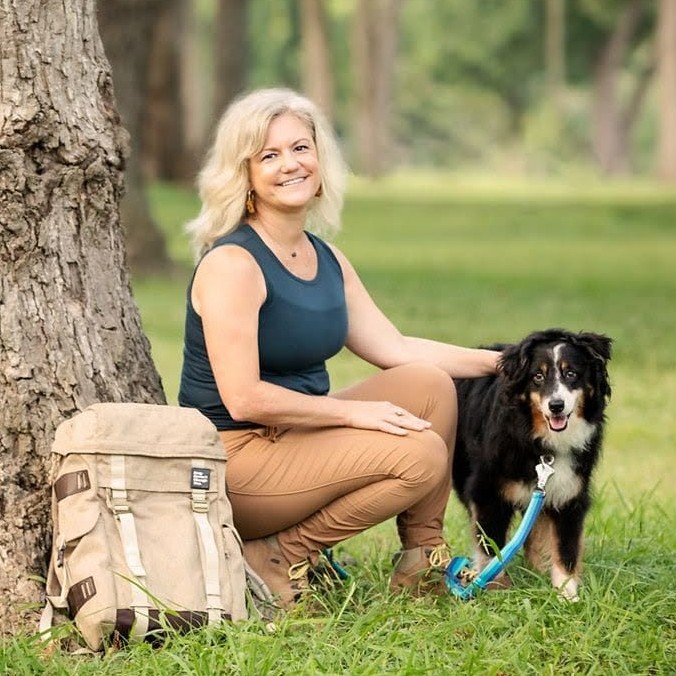I had a BIG scare with one of my own dogs, Daisy this last week. So I thought it would be a great time to share my thoughts on detox. This was absolutely a test to my own patience which is kind of ironic, since that is what I coach my clients on all the time. As an Animal Naturopath, I believe that when supported correctly the body has the ability to heal itself.
General Info On Toxins
Most likely, you have a general idea what toxins are. We often hear things described as being "toxic," and we understand that this is bad, potentially damaging, and perhaps poisonous. Toxins can cause, worsen, or accelerate many health problems in people and pets. But many of the toxins that can profoundly affect our own and our pets' health are hidden, and we may be unknowingly contributing to the load of toxins we and our pets have in their bodies. While toxins are bad for us, they can be even more devastating to our pets for several reasons.
First, pets are generally much smaller than we are, with smaller organs of elimination (e.g., liver, kidneys, lungs). When exposed to toxins, their bodies have to work much harder than ours do to eliminate them. Second, pets have a shorter life span. They don't have the luxury of time that we have for their bodies to eliminate toxins as gradually. Also, our pets can't talk to us to let us know when something in their food or their environment is making them feel sick. They can't switch their own food or decide to stop using a household cleaner that irritates their sinuses or lungs. Since we control our pets' environment, they rely on us 100% to reduce toxins they encounter.
So what can you do to minimize the toxins in your pets' lives and help them eliminate the toxic load they have in their bodies? Before tackling the specifics of how to help your pet with detoxification, lets take a brief look at what toxins are, where they come from, and how they affect cats and dogs.
In a healthy body, toxins are rounded up and eliminated quickly through the organs of elimination (liver, kidneys, lungs, intestines, and skin). Our pets' wild counterparts have very efficient toxin elimination systems that have developed over centuries to handle the natural toxins they encounter, but our domesticated pets are bombarded daily with an overwhelming number of toxins, most of which their bodies have not had enough evolutionary time to adapt to. In the short run, our pets' bodies react to toxins as ours do - the immune system ramps up processes like inflammation, mucus production or diarrhea to help the immune system's army of cells resolve the problem and purge the offending "invaders" from the system.
When the body is overwhelmed with too many toxins, it is forced to store them until there is an opportunity to eliminate them at a better time. For many pets, the better time never arrives, and toxins can accumulate indefinitely, where over time they can cause symptoms like lethargy, fatigue, and/or proneness to infection. Ultimately toxic overload can impede the work of your pet's immune system to the point where cellular abnormalities like tumors and cysts may form, and other serious health conditions may develop as cells degrade and organ function is impaired.
The good news is that for most pets, their bodies are remarkably well-equipped to handle disease, eliminate a reasonable amount of toxins, and restore their own organs and body systems to health - with your help. When a natural diet with adequate nutrients, rest, exercise and joy are part of their daily experience, your pet may be capable of a level of health you never thought possible.
Keep in mind that as the body is eliminating toxins, it is not unusual for there to be a brief "healing crisis," in which a cat or dog may develop symptoms like a runny nose or changes in bowel function or appetite. Such symptoms should subside in a few days. As always, observe your pet closely when you administer any remedy, stop any remedy if symptoms develop that concern you, and consult with a holistic veterinarian for appropriate guidance.
Daisy's Story
I give my dogs raw meaty bones once or twice a month, it's their most favorite thing! Talk about a babysitter for active dogs....it's truly the best! Last week, Daisy wasn't interested in her bone and didn't eat her dinner, the next morning she STILL wasn't interested in any food, so I took her to the vet for an exam and work-up. She had routine bloodwork done less than 2 months prior and it was perfect! So my original thought was it was her teeth, I knew she could use a cleaning. When the vet called with her results I was floored that her liver values were at a deathly high level!
The vet couldn't rule out cancer, but my gut was that this was a toxin so I opted to do Sub Q fluids at home, then support and detox her liver in holistic manner. In my Animal Naturopathy ways, the last thing I wanted to do was load her liver up with a ton of meds for "what-ifs" and put more stress on it. We did Raindrop Therapy, Detox Baths, and Herbals. It has been a week and she seems to be a great deal better and eating everything in sight again. Of course we won't know for sure until we re-test her bloodwork, vet says 30 with continued improvement.
I realize that this course of action may not be for everyone and I'm not a vet by any means, but I want you to know that you do have choices when it comes to your own dog.

